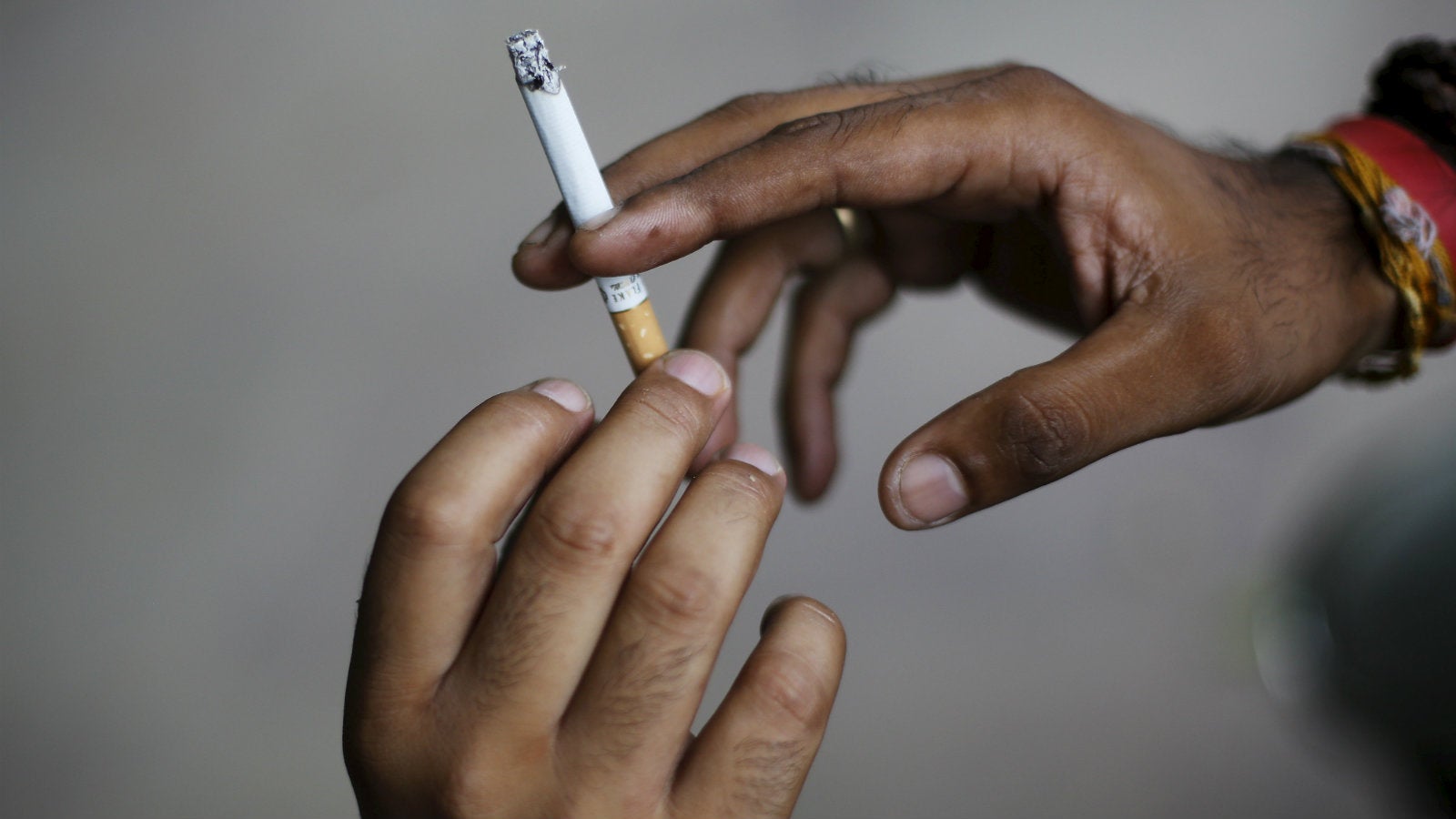Three major anti-smoking groups are joining forces to fight Big Tobacco
Three of the globe’s most ardent anti-tobacco groups are joining forces, part of new effort to create a one-stop shop to monitor the tobacco industry, its lobbying tactics, and its marketing strategies.


Three of the globe’s most ardent anti-tobacco groups are joining forces, part of new effort to create a one-stop shop to monitor the tobacco industry, its lobbying tactics, and its marketing strategies.
Stopping Tobacco Organizations Products (STOP) is comprised of the University of Bath’s Tobacco Control Research Group, the Thailand-based Global Center for Good Governance in Tobacco Control, and The Union, a French group with hubs in New York, China, India, Singapore, and Mexico.
The coalition is being funded, in part, by Bloomberg Philanthropies, started by the New York billionaire Michael Bloomberg, which has committed to contributing $20 million during the next three years.
The World Health Organization (WHO) estimates that smoking tobacco kills about 6 million people around the world every year—includes about 600,000 who die from exposure to second-hand smoke. The poison in cigarette smoke works to weaken the body’s immune system, which can make it more difficult to ward off cancer cells. About 90% of lung cancers are linked to smoking.
“The tobacco industry is a major obstacle in the global drive to stop people dying early from cancer and heart disease,” says WHO director-general Tedros Adhanom Ghebreyesus, “STOP will be a key partner in the effort to uncover and overcome these barriers to tobacco control. WHO is delighted to work with STOP to protect people from tobacco.”
The three groups in the new coalition are noteworthy in their own right. The University of Bath has created an online tool that maps out more than 750 individuals and entities connected to the tobacco industry. The Global Center for Good Governance in Tobacco Control produces a regular survey of how public-health policies are shaped in nine Southeast Asian countries. The Union runs an online database of international smoking-related statistics.
STOP will publish investigative reports into the tobacco industry, many of which are to be compiled by a new rapid-response team that will focus on getting information out through social media and initiatives for specific localities. In combining forces, the three groups want to ensure they will be able to influence anti-smoking policies in the developing world. Smoking in the US has declined since public-health groups took on the tobacco industry. In places such as India, smoking is still widespread—more than half-a-million Indian children are smokers—and groups are looking to begin taking action there.
In addition to educational efforts, governments have sought to create steep taxes for tobacco products, force cigarette companies to slap grotesque anti-smoking ads on their products, and recently the US Food and Drug Administration has sought to lower nicotine in cigarettes to minimal or non-addictive levels.